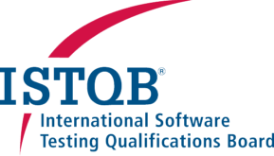 ISTQB® releases Certified Tester Game Testing v1.0.1 (CT-GaMe)
ISTQB® releases Certified Tester Game Testing v1.0.1 (CT-GaMe)

ISTQB® has released the Certified Tester Game Testing (CT-GaMe) version 1.0.1. This is the first CT-GaMe certification and is part of the Specialist stream within the ISTQB® Certified Tester Scheme. It offers a next step after the ISTQB® Certified Tester Foundation Level (CTFL) for anyone involved in software testing wishing to broaden their knowledge of game testing or anyone who is pursuing a specialist career in game testing. The qualification is also aimed at anyone involved in game software engineering who wants to gain a better understanding of game testing.
The release consists of the ISTQB® Certified Tester Game Testing Syllabus (v1.0.1), Sample Exam Questions and Answers (v1.0.1), all in three formats (pdf, mobi and epub), Release Notes (v1.0.1) and Accreditation Guidelines (v1.0) are also included. The syllabus is aligned to the ISTQB® Glossary. The combined “Exam Structure and Rules” has been updated to v1.1 and “Exam Structure Table” to v1.5. All are available for download at https://www.istqb.org/certifications/game-testing.
The content of the new syllabus addresses 6 Business Outcomes via 55 Learning Objectives.
What does this ISTQB® CT-GaMe release mean?
● The 1.0.1 syllabus for CT-GaMe will be the prevailing current version.
● For accredited training courses, the syllabus requires a minimum of 15 hours and 25 minutes of instruction
● Training courses require accreditation of training materials, as described in the ISTQB® Accreditation Process
ISTQB® President Olivier Denoo stated:
“With a global market size of over USD 200 billion in 2021, the video game industry is still expected to expand dramatically over the next decade. Advances in PC and console technology, in both hardware and software, and the proliferation of smartphones and the easy availability of games on the internet are expected to contribute to the growth of this sector.
The ISTQB® is proud to deliver a dedicated specialist syllabus on game testing. With topics like testing game mechanics, video & sound, localization, levels or controllers this syllabus offers a wide panorama of all it takes to approach the different aspects of quality control in modern video games.”
Product Owner Andrey Konushin added:
“The video gaming industry is bigger than the movie and music industry combined. Software is the basis of video games, and the lack of a standard approach to game testing creates a high risk of insufficient quality products in the market. The ISTQB® Certified Tester Game Testing module allows companies to significantly reduce this risk, and for specialists to gain recognition from the professional community. For 2 years, a task force of experts has been creating this module, and due to effective ISTQB® product development processes, it has incorporated the best practices and approaches from around the world. ISTQB® will continue to support and develop this module to keep it relevant as the gaming industry continues to grow.”
Chair of ISTQB® Marketing Working Group Sebastian Małyska, noted:
“As Oliver, president of the ISTQB®, and Andrey, PO for CT-GaMe, have already mentioned, the market demand for this certification is huge. The quality expectation in this industry is critically important and the customer feedback is instant and final meaning this is an extremely challenging environment for testing professionals. With this certification, those already working in the industry can benefit from benchmarking and attesting to their skills, those new to the field will boost their understanding and knowledge for a career in a very dynamic and exciting discipline of game testing. Importtantly, ISTQB® CT-GaMe certified test professionals will help us, the customers, to be assured of better quality products.”
Thank you to all who have supported this syllabus. Especially the task force team Andrey Konushin (President of the RSTQB), Margarita Trofimova (Vice-president of the RSTQB), Alexander Alexandrov (Editor-in-Chief), Vadim Lukovaty, Maksim Nikolaev, Pavel Sharikov, Alexander Torgovkin and Svetlana Yushina.
In addition, the core team would like to acknowledge and thank the leaders and members of the Working Groups for their early and ongoing guidance: Galit Zucker (General Secretary), Graham Bath (Chair, Specialist Working Group), Gary Mogyorodi (Member, Glossary Working Group), Klaus Skafte (Chair, Exam Working Group) and Sebastian Małyska (Chair, Marketing Working Group).
Most recent


